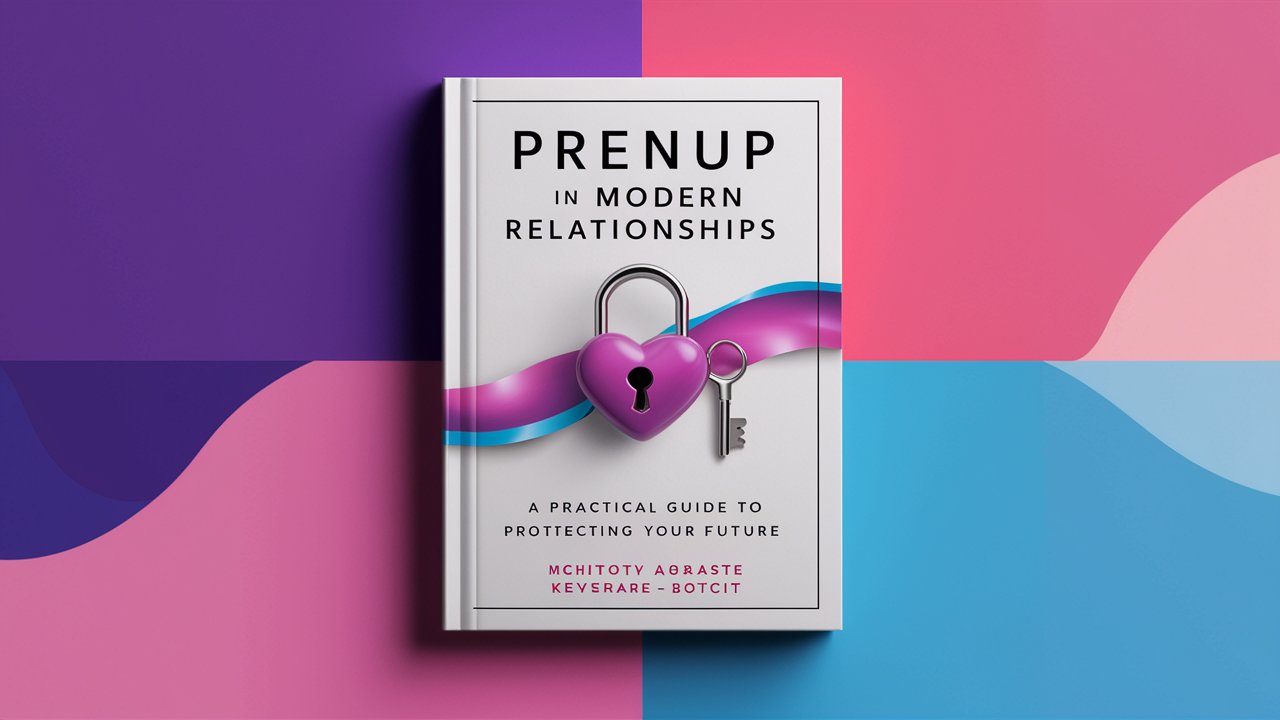In today’s evolving societal landscape, prenuptial agreements (prenups) are shedding their outdated stigma and emerging as a pragmatic tool for couples to safeguard their financial and emotional futures. Far from being a symbol of distrust, a well-crafted prenup fosters transparency, reduces future conflicts, and empowers couples to enter marriage with clarity. This article explores the critical aspects of prenuptial agreements, dispels myths, and offers actionable insights for couples considering this proactive step.
1. Understanding the Purpose of a Prenup
A prenuptial agreement is a legally binding contract that outlines how assets, debts, and financial responsibilities will be managed during a marriage and, if necessary, in the event of divorce or death. Contrary to popular belief, its primary purpose isn’t to anticipate failure but to establish mutual respect and understanding. For instance, it can protect premarital assets, address inherited wealth, or clarify financial roles in a partnership. Entrepreneurs, individuals with children from prior relationships, or those with significant student loans often find prenups invaluable for preserving financial stability and minimizing legal battles.
2. Key Elements of a Comprehensive Prenup
A robust prenup should cover several core areas to ensure enforceability and fairness. These include:
- Asset Division: Clearly define which assets are separate (owned before marriage) and which are marital (acquired during marriage).
- Debt Protection: Specify responsibility for pre-existing debts to prevent one partner from inheriting the other’s financial liabilities.
- Spousal Support: Outline terms for alimony or waive it entirely, depending on mutual agreement.
- Estate Planning: Integrate provisions for inheritance, especially if one or both partners have children from previous relationships.
- Sunset Clauses: Include conditions under which the prenup expires or is revised (e.g., after 10 years or upon having children).
Legal requirements vary by jurisdiction, so consulting an attorney is essential to avoid loopholes.
3. Common Misconceptions About Prenuptial Agreements
Prenups are often misunderstood as tools exclusively for the wealthy or pessimistic. However, this narrow view overlooks their broader benefits. For example, a prenup can protect a stay-at-home parent’s financial contributions by ensuring compensation for career sacrifices. It can also shield family businesses or cultural heirlooms from being divided in court. Another myth is that prenups “kill romance,” but many couples report that honest financial discussions actually strengthen trust and alignment in their relationship.

4. The Benefits of a Prenup Beyond Wealth Protection
While financial security is a key motivator, prenups offer emotional and relational advantages. They encourage couples to address difficult topics—like spending habits, financial goals, and contingency plans—before they become sources of conflict. For blended families, prenups ensure that children from prior relationships retain their rightful inheritances. Additionally, in cases of international marriages, a prenup can resolve jurisdictional complexities by predetermining which country’s laws apply to asset division.
5. How to Approach the Prenup Conversation
Initiating a discussion about a prenup requires sensitivity and timing. Frame it as a collaborative effort to protect both partners’ interests rather than a one-sided demand. Choose a neutral, stress-free setting, and emphasize shared goals like financial transparency or safeguarding family legacies. If emotions arise, pause and revisit the conversation later. Involving separate attorneys ensures fairness and demonstrates respect for each party’s autonomy.
FAQ Section
Q: Is a prenup only for wealthy couples?
A: No. Prenups benefit anyone with assets, debts, children, or future financial goals. They’re equally valuable for protecting middle-class earners or entrepreneurs.
Q: Can a prenup be modified after marriage?
A: Yes. Postnuptial agreements allow couples to update terms as circumstances change, such as career shifts or inheritance.
Q: What happens if we don’t have a prenup?
A: Without a prenup, state or national laws dictate asset division, which may not align with your preferences.
Q: Are prenups enforceable in court?
A: Generally, yes—if both parties fully disclosed assets, signed voluntarily, and had legal representation.
Conclusion
A prenuptial agreement is more than a legal formality—it’s a forward-thinking commitment to honesty and preparedness. By addressing financial realities head-on, couples can build a stronger foundation for their marriage, free from unresolved anxieties about the unknown. Whether you’re safeguarding a family business, ensuring fairness for children, or simply aligning your financial visions, a prenup empowers you to focus on what truly matters: nurturing a resilient, trusting partnership.